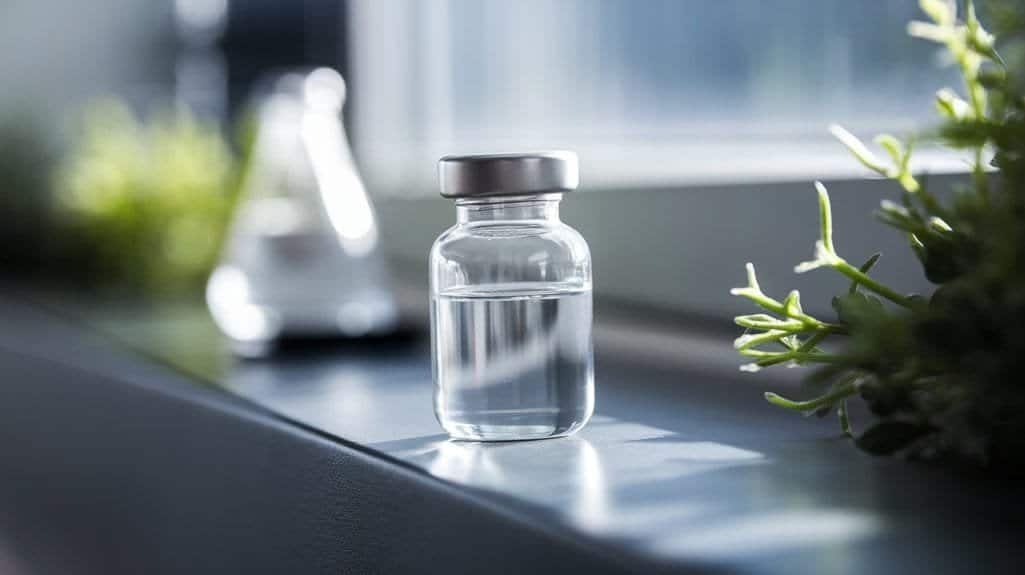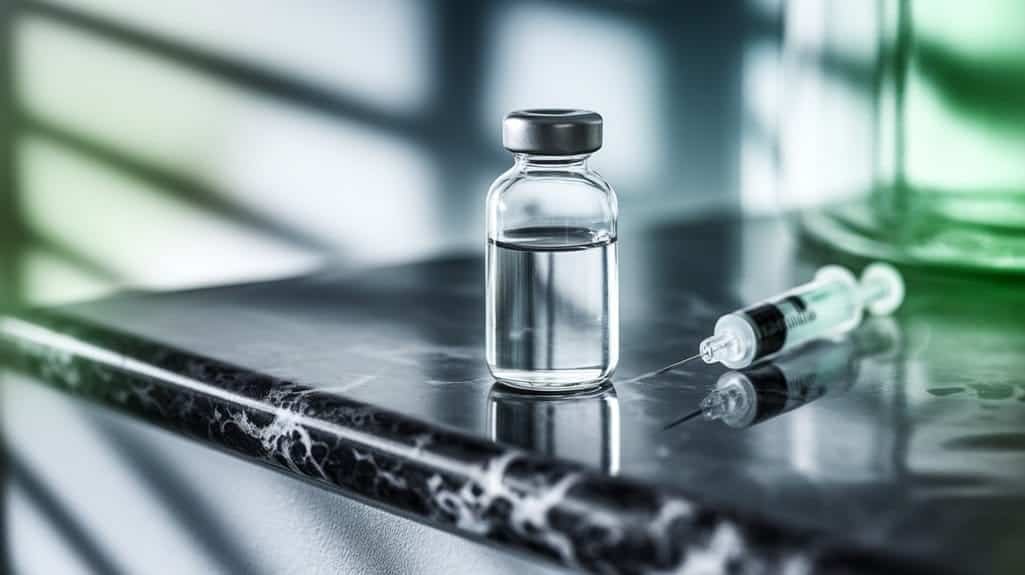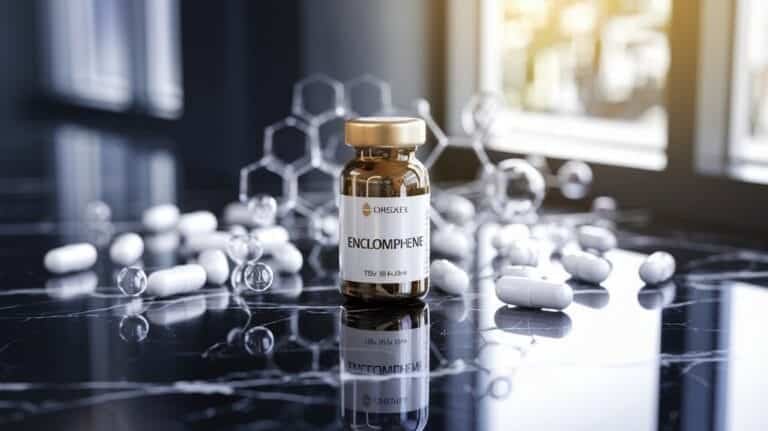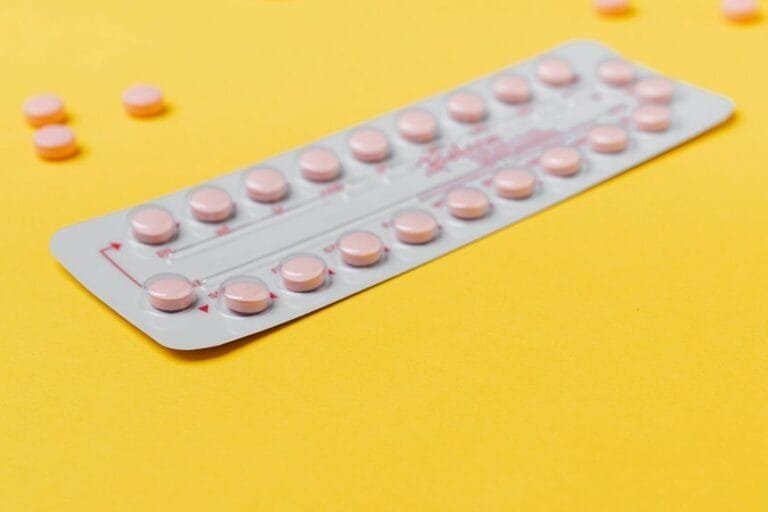After stopping enclomiphene, your testosterone levels can remain elevated for at least one week. This allows your body to gradually return to baseline without abrupt hormonal shifts, as enclomiphene doesn't suppress LH or FSH, preserving natural testosterone production. With proper dosing, you may achieve stable total testosterone levels between 400 to 700 ng/dL, supporting both hormonal balance and fertility. Understanding the nuances of these effects can provide insights into your treatment options.
Key Takeaways
- Testosterone levels remain elevated for at least one week after stopping enclomiphene, gradually declining thereafter.
- Initial testosterone levels post-treatment are higher than baseline, providing a buffer against sudden drops.
- Enclomiphene allows natural testosterone production without suppressing LH and FSH, promoting hormonal balance.
- Blood tests are essential for monitoring hormone fluctuations post-treatment.
- Sustained elevated testosterone levels can last weeks after cessation, aiding in metabolic health.
Effects on Testosterone Levels After Treatment

When you stop enclomiphene treatment, you'll likely notice that your testosterone levels remain elevated for at least a week. This delayed decline provides flexibility for missed doses without significant side effects. Unlike testosterone replacement therapy (TRT), enclomiphene doesn't suppress luteinizing hormone (LH) and follicle-stimulating hormone (FSH), allowing your natural testosterone production to be maintained. As a result, natural testosterone levels gradually return to baseline rather than plummeting abruptly after cessation. Clinical observations indicate that this gradual decrease helps prevent severe disturbances in hormonal balance, offering unique enclomiphene benefits over TRT. After one week, your testosterone levels will still be higher than baseline, showcasing the sustained impact of enclomiphene on your endocrine system. In fact, participants in enclomiphene groups experienced declines in testosterone, but levels remained above baseline after one week off.
Comparison With Baseline Testosterone Levels
When you stop enclomiphene treatment, your testosterone levels initially remain remarkably higher than your baseline. This elevated state provides a buffer against the decline that occurs within the first week, emphasizing enclomiphene's unique profile compared to traditional testosterone replacement therapies. Enclomiphene offers similar testosterone improvement with lower adverse events, making it an attractive option for managing hypogonadism. Understanding this comparison is essential for evaluating hormonal recovery and anticipated outcomes following cessation.
Post-Treatment Testosterone Comparison
Although testosterone levels decrease following the cessation of enclomiphene, they typically remain elevated compared to baseline measurements for a notable period.
Within the first week post-treatment, many individuals observe testosterone levels still markedly above baseline.
Implementing effective shift strategies, such as gradual tapering, can help manage the immediate side effects often noted after stopping, including fatigue and mood swings.
Regular blood tests serve as an essential tool for monitoring these hormone fluctuations during this shift. Gradual tapering off TRT is crucial to avoid shocking the body and mitigate potential withdrawal symptoms.
By actively managing side effects and adjusting treatment as necessary, you can optimize recovery.
Careful observation enables better decisions regarding any further interventions or adjustments to treatment plans, ensuring a smoother shift back to normal testosterone production levels.
Baseline Levels vs. Elevated
The comparison of testosterone levels after enclomiphene treatment highlights a significant elevation from baseline measurements, providing a stark contrast to pre-treatment levels. You'll observe:
- Baseline testosterone typically ranges from 200-230 ng/mL for men with secondary hypogonadism.
- After treatment, levels can surge to around 450 ng/mL.
- Elevated levels can persist beyond 7 days after discontinuation.
- Individual responses reveal baseline variability influenced by factors such as age and BMI.
While treatment duration varies, most men see substantial increases within the first month.
Importantly, enclomiphene allows for natural testosterone production while sidestepping the adverse effects commonly associated with exogenous testosterone therapies.
This distinct profile marks enclomiphene as a compelling option for managing testosterone deficiencies.
Duration of Elevated Testosterone After Discontinuation

While stopping enclomiphene treatment, testosterone levels remain elevated for at least one week, providing a temporary buffer for the body's hormonal balance.
Research indicates that post-treatment duration is critical, as testosterone levels gradually decline but stay considerably higher than baseline after seven days. This gradual decrease means you're less likely to experience abrupt hormonal shifts.
Unlike transdermal testosterone, which can drop below baseline quickly, enclomiphene helps sustain elevated testosterone due to its stimulation of natural hormone production.
The continuation of elevated testosterone for this duration highlights enclomiphene's relative safety profile, minimizing withdrawal symptoms and offering a smoother shift for patients considering other treatment options or discontinuation altogether.
Dose-Dependent Testosterone Level Changes
When considering enclomiphene citrate, you'll notice that higher doses correlate with more significant increases in total and free testosterone levels.
This dose-dependent response allows for tailored dosing recommendations to optimize your testosterone production while minimizing potential side effects.
Understanding these dynamics is vital for achieving desired hormonal outcomes.
Higher Doses Impact Levels
Higher doses of enclomiphene citrate lead to notable dose-dependent increases in testosterone levels.
You'll notice that the dose response relationship is essential, as higher doses effectively enhance your total and free testosterone levels within just 14 days.
Consider the following points regarding dose adjustment strategies:
- Total testosterone (TT) levels stabilize within a desirable range of 400 to 700 ng/dL.
- Free testosterone markedly increases at 25 mg and 50 mg doses.
- Higher doses have minimal impact on dihydrotestosterone (DHT) levels, maintaining balance.
- No notable changes occur with placebo treatment.
When determining your dosage, it's imperative to recognize that higher doses correlate with more substantial increases, emphasizing the importance of tailored treatment to optimize hormone levels effectively.
Tailored Dosing Recommendations
Tailored dosing recommendations for enclomiphene citrate play a significant role in achieving ideal testosterone levels, given the clear dose-dependent increases observed in studies.
You can optimize outcomes by tailoring dosages to your specific needs, with effective doses of 12.5 mg, 25 mg, and 50 mg all showing significant upticks in total testosterone levels within just 14 days.
Importantly, maintaining testosterone in the desirable range of 400 to 700 ng/dL is possible with strategic dosing.
Additionally, these adjustments promote natural hormonal balance without suppressing luteinizing hormone or follicle-stimulating hormone levels.
Hormonal Balance and Safety Profile

Although enclomiphene is widely regarded for its effectiveness in restoring testosterone levels, understanding its impact on hormonal balance and overall safety is essential for informed decision-making.
After discontinuation, testosterone levels decline but remain considerably higher than baseline for a limited period.
Key considerations include:
- Hormonal interactions between LH/FSH and testosterone production.
- Minimal adverse events and a well-tolerated safety profile.
- Safety guidelines caution against use with a history of blood clots or cardiovascular issues.
- Close monitoring recommended for individuals with liver problems.
While further studies are needed to fully elucidate the duration of elevated testosterone levels post-treatment, the considerable benefits alongside a favorable safety profile make enclomiphene a remarkable option for managing testosterone deficiencies.
Clinical Applications of Enclomiphene
Enclomiphene presents a promising therapeutic option for managing conditions related to low testosterone levels and male fertility, effectively stimulating the hypothalamic-pituitary-gonadal axis.
This agent not only enhances fertility through hormonal modulation by increasing testosterone but also preserves spermatogenesis, distinguishing it from traditional testosterone replacement therapies.
Clinical trials confirm significant improvements in sperm quality and motility, making it a viable adjunct for infertility treatments.
Importantly, enclomiphene avoids common side effects such as testicular shrinkage. Its efficacy persists post-treatment, with testosterone levels remaining elevated for weeks, offering sustained benefits.
As research expands, enclomiphene's potential applications may extend into metabolic health and beyond, positioning it as a multifaceted option for various clinical challenges.
Frequently Asked Questions
Can Enclomiphene Cause Withdrawal Symptoms After Stopping Treatment?
Yes, stopping enclomiphene can lead to withdrawal symptoms, reflecting hormonal regulation concerns. You might experience fatigue, mood swings, or decreased libido due to hormonal fluctuations as your body adjusts post-enclomiphene. Regular monitoring is essential.
Is Enclomiphene Suitable for Women or Just Men?
Imagine a garden thriving under sunlight; enclomiphene effects primarily benefit men, as evidence lacks for female fertility enhancement. While its suitability for women isn't established, ongoing research may explore potential applications in future treatments.
How Does Enclomiphene Compare to Other Fertility Treatments?
When you compare fertility treatments, enclomiphene benefits stand out due to its targeted hormonal action, lower side effects, and efficacy in preserving fertility. It offers a compelling alternative to traditional therapies for managing male hypogonadism.
What Should I Do if Testosterone Levels Don't Improve?
If your testosterone levels don't improve, consider discussing alternative treatments like testosterone therapy or hormone replacement with your healthcare provider. Regular monitoring and dosage adjustments can enhance outcomes tailored to your individual response and health status.
Are There Any Lifestyle Changes to Boost Testosterone After Stopping Enclomiphene?
To elevate your testosterone levels, think of your body as a finely-tuned machine. Implement dietary changes rich in zinc and vitamin D, and establish exercise routines focused on resistance training and HIIT for ideal hormonal balance.






